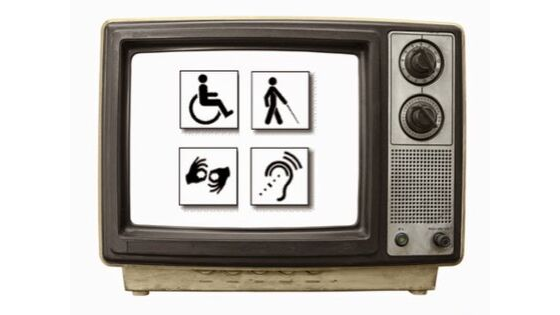"Once More, With Feeling"
/Spoiler alert, and while we’re at it, nerd alert …
This post is mainly a bit of self-indulgent fun.
A little over four years ago, I posted a comparison between two ways of parenting kids with disabilities, and Joyce and Giles’ approaches to “parenting” a vampire slayer on the TV show Buffy The Vampire Slayer.
Just recently, I re-watched one of my favorite “Buffy” episodes, “Once More, With Feeling,” which…
(SPOILER!, SPOILER!, SPOILER!)
… is a musical episode in which the main characters are under an enchantment that makes them involuntarily sing about the many difficult secrets they have been keeping from each other.
The songs sampled below are about several things, some of which have nothing at all to do with disability, even by analogy. But my “disability thinking” radar kept on pinging, so I thought I’d share. If you haven’t seen the show, read on or don’t, it’s up to you. But really this is going to be best for readers who are are familiar with Buffy The Vampire Slayer and have seen “Once More, With Feeling.” So …
(SPOILER!, SPOILER!, SPOILER!)
Depression
In the episode’s opening song, Buffy essentially sings about depression:
Every single night, the same arrangement,
I go out and fight the fight.
Still I always feel this strange estrangement,
Nothing here is real, nothing here is right.
I don’t want to be
Going through the motions,
Losing all my drive.
I can’t even see
If this is really me
And I just want to be … alive!
Later the story, what Buffy is experiencing gets even more clear. And what I especially like is that her song includes how part of depression is having to cope with how others react to it, and how we end up worrying about that while we’re coping with our own emotions:
I touch the fire and it freezes me.
I look into it and it’s black.
Why can’t I feel?
My skin should crack and peel!
I want the fire back!
So one by one, they turn from me,
I guess my friends can’t face the cold.
But why I froze, not one among them knows.
And never can be told.
And near the end of the story, Buffy lays it all out and shares how she’s really been feeling, whether her friends can handle it or not:
Life’s a show, and we all play a part.
And when the music starts.
We open up our hearts.
Where there’s life, there’s hope.
Every day’s a gift.
Wishes can come true.
Whistle while you work.
So hard. All day.
Give me something to sing about!
I need something to sing about!
Still my friends don’t know why I ignore
The million things or more
I should be dancing for.
All the joy life sends.
Family and friends.
All the twists and bends.
Knowing that it ends.
Well, that depends …
Unexpected Love
Tara’s love song for Willow has a layer of darkness, but the first part of it speaks beautifully about finding love and kinship when you thought you might never find either. This is something people with disabilities often experience, especially those of us who grew up with disabilities. Internalized ableism is powerful:
I lived my life in shadow, never the sun on my face.
It didn’t seem so sad though, I figured that was my place.
Now I’m bathed in light. Something just isn’t right.
I’m under your spell.
How else could it be, anyone would notice me?
It’s magic, I can tell.
How you set me free, brought me out so easily.
I saw a world enchanted, spirits and charms in the air.
I always took for granted, I was the only one there.
But your power shone, brighter than any I’ve known.
Standing In The Way
Giles, who is Buffy’s “Watcher,” her trainer and teacher, has over several seasons also become Buffy’s surrogate father. In his song, he worries that his deep desire to smooth her very difficult path has caused him to hinder her full maturity and independence. It’s something I know my parents struggled with at times. And I suspect a lot of parents of kids with disabilities will find Giles’ feelings familiar:
You’re not ready for the world outside.
You keep pretending, but you just can’t hide.
I know that I said that I’d be standing by your side,
But I…
I wish I could say the right words to lead you through this land,
Wish I could play the father, and take you by the hand.
Wish I could stay … but now I understand
I’m standing in the way.
I wish I could lay your arms down, and let you rest at last.
Wish I could slay your demons, but now that time has passed.
Wish I could stay … your stalwart standing-fast,
But I’m standing in the way.
I’m just standing in the way.
So I’m curious … what pop cultural artifacts resonate for other disabled people? Which TV shows, movies, or songs give you insight into the disability experience or reflect how you feel about it? Share if you like in the comments below.











